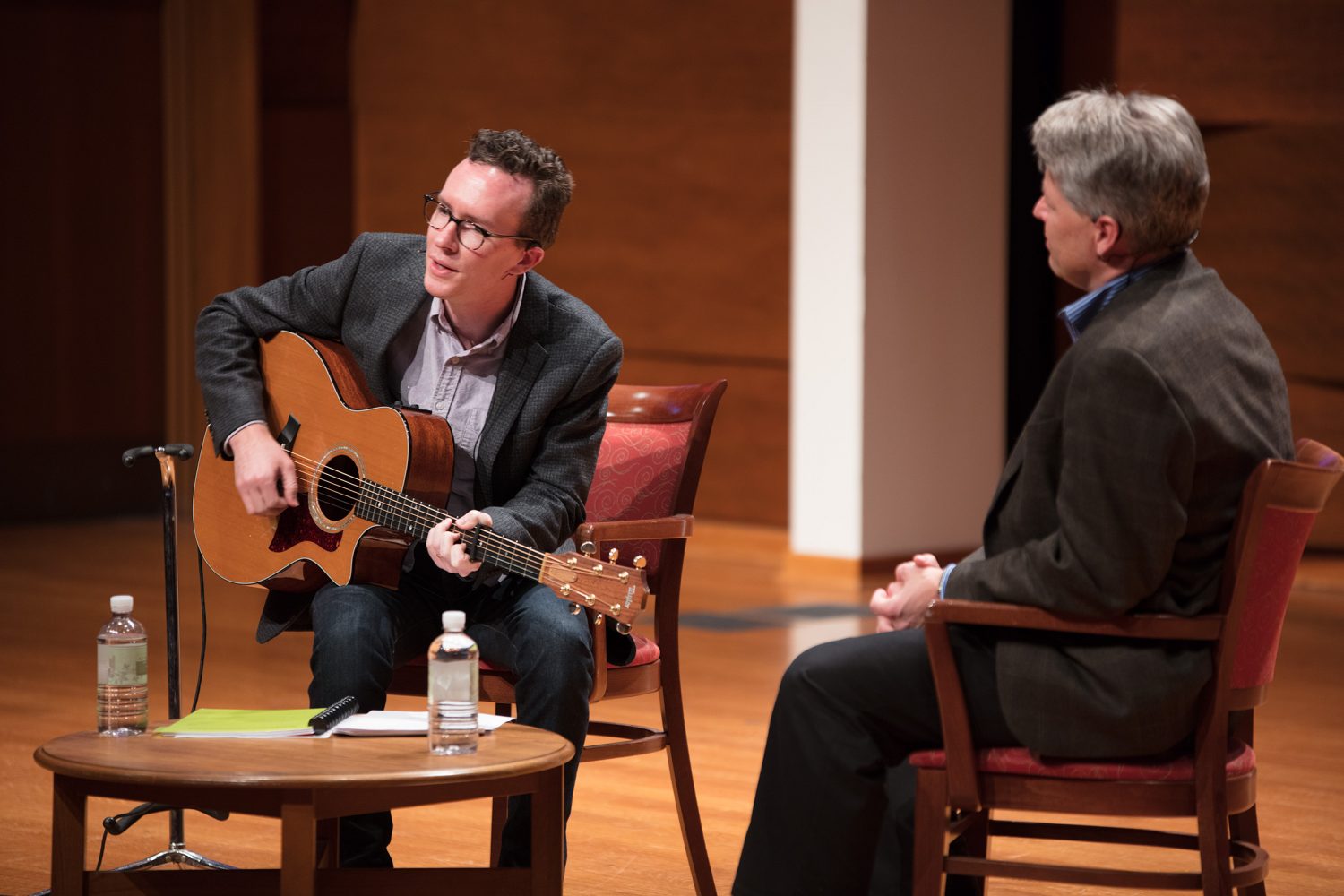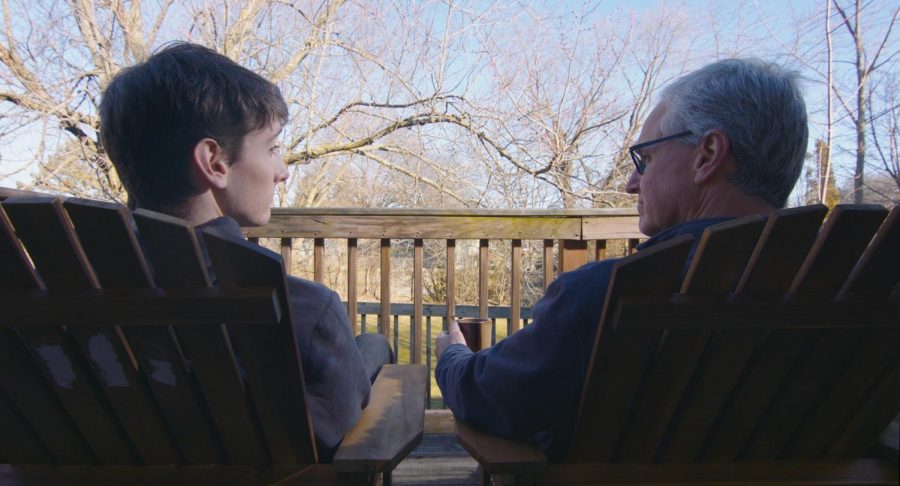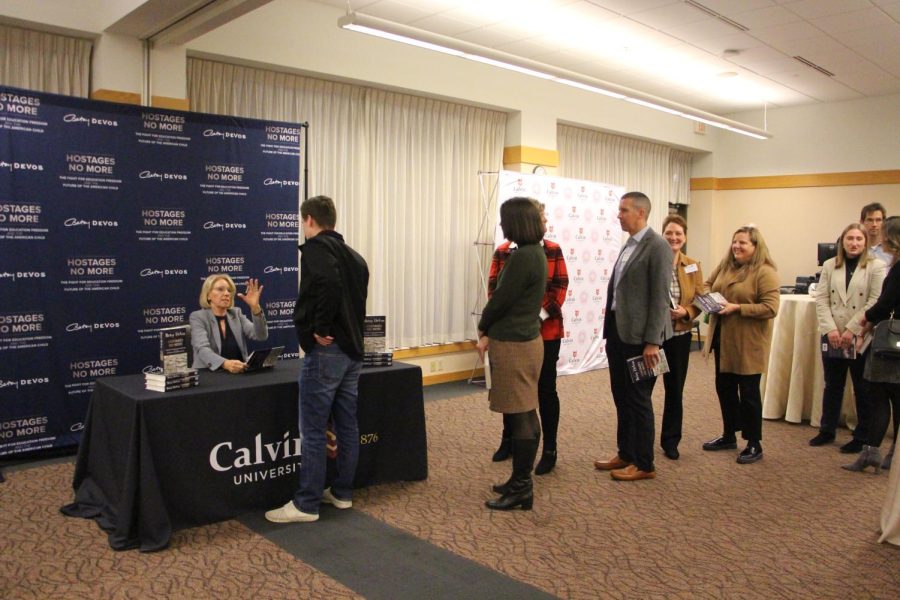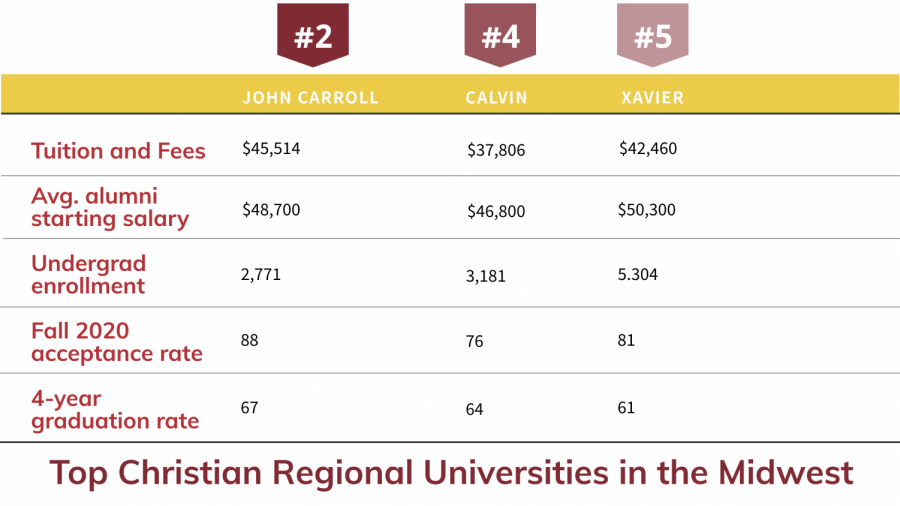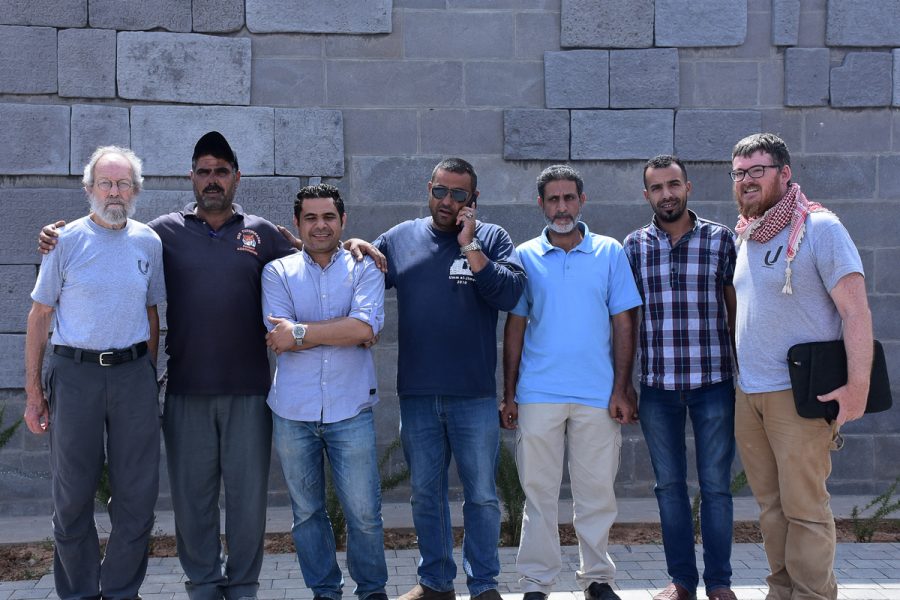Last Thursday, songwriter and worship leader Wendell Kimbrough visited Calvin to lead morning chapel and participate in a Q&A with John Witvliet, the director of the Calvin Institute of Christian Worship.
Kimbrough is the worship arts director at Church of the Apostles in Fairhope, Alabama, and he has spent the last year and a half writing one musical setting of a psalm every week. He shares these psalms with the congregation at Church of the Apostles, and he has recently released a recording of several of them entitled “Psalms We Sing Together.”
Witvliet characterized Kimbrough’s style as “simple but not simplistic,” including easily singable melodies for congregations while also featuring interesting harmonies for more skilled musicians.
During the Q&A, Kimbrough performed sections from three of his psalm settings featured on the new recording: “Oh Give Thanks (Psalm 107),” “The Hope of the Poor (Psalm 9)” and “In You, O Lord, I Am Found (Psalm 139).” Witvliet pointed out that the refrain of Psalm 9, which includes the line “the needy will not be forsaken,” is “so pointed, especially for this moment in history.”
Kimbrough emphasized the value of singing the Psalms instead of only reading them:
“They lose a lot of their power when they’re divorced from music,” Kimbrough said.
Kimbrough described the worship style he grew up with as “dry,” allowing only intellectual engagement with the gospel instead of emotional. The Psalms, however, don’t fit into that kind of worship — they’re “explosive.”
“The Psalms are helping me bring emotions into church,” Kimbrough said.
Kimbrough identified two steps in his songwriting process: first, he spends a few hours playing with a psalm and getting something down on paper, then he returns a few days later to get the details right. The text is the biggest focus for these revisions, since it’s “prayer on people’s lips” and needs to be right.
Witvliet and Kimbrough also discussed the difference in approach between leading worship in a church and producing a record. The Christian music industry, like the music industry in general, follows an “ethic of attention grabbing,” which often leads to arrangements that are difficult for congregations to sing.
As an example, Kimbrough pointed to the tactic of setting the chorus of a song in a low key so that the singer can jump up an octave later, creating a compelling moment for the listener. Congregations, however, don’t have the range necessary to do that, and Kimbrough said it’s a form of disrespect to ask them to.
Kimbrough advised songwriters to “take your arrangements to a living room” and test them with a small group of people who aren’t music professionals, an approach that is “counter-cultural” in the world of Christian music.
Paul Ryan, Calvin’s associate chaplain for worship, said, “I am impressed by the beauty and simplicity of Wendell’s melodies. I can’t help humming his tunes throughout the day. The Psalms capture the breadth and depth of the human experience, and Wendell’s songs go a long way in helping us to have them on our lips and in our hearts.”
Kimbrough’s album is available digitally on Amazon, BandCamp and iTunes. More information can be found at his website, wendellk.com.




